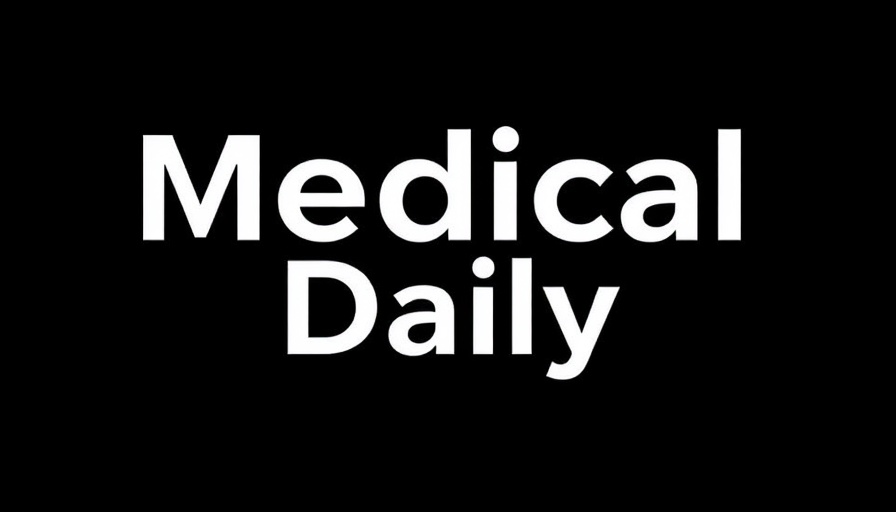
The Fading Power of a Political Force
President Donald Trump’s recent comments from a Republican strategist have raised alarm bells regarding his cognitive health and the implications for his presidency. While Trump has maintained a narrative of good health, experts are beginning to question how he can manage the vast responsibilities that accompany the highest office in the land.
Spotlight on Trump's Mental Acuity
Rick Wilson, co-founder of the Lincoln Project, has been vocal about his concerns, observing that Trump’s communication skills, memory, and coherence appear to be in decline. Wilson points out that instances of cognitive lapses have become significant enough to warrant attention. While noting he is not a medical professional, Wilson referenced patterns he believes are similar to early signs of dementia, raising questions that many people are too hesitant to ask.
The Debate on Health Assessments
The discrepancies between Wilson’s comments and the White House physician Captain Sean Barbabella’s endorsement of Trump’s health create an intriguing debate. In April, Barbabella declared Trump to be in “excellent cognitive and physical health.” This raises the question: how can a person be labeled as healthy while also showing visible signs of cognitive decline? For many Americans, this discrepancy underlines the importance of trusting medical insights over political rhetoric.
Cultural Reflection on Leadership and Health
The observations regarding Trump's fitness for leadership have broader implications for how society views aging and cognitive health in public office. This is not just about one individual; rather, it reflects a growing awareness of mental health and its significance in high-stakes environments like politics. The parallel concerns over Joe Biden’s cognitive abilities only further complicate the public's perception of Presidential health.
Societal Impact of the 'Cognitive Decline' Narrative
The discourse around Trump’s declining cognitive abilities could influence various societal attitudes, particularly regarding mental health and wellness. This conversation brings to light the importance of discussing mental clarity and emotional well-being within the context of leadership, ultimately pushing for more transparent health evaluations among politicians.
Navigating the Future Political Landscape
Looking at the future, Wilson predicts internal strife among Trump's supporters, creating a potential 'civil war' over succession plans within the party. This speculation, if proven true, highlights the vulnerabilities that the Republican Party may face in the lead-up to the 2028 elections. As this narrative unfolds, the impact of Trump’s cognitive health could indeed change the course of political leadership in America.
Importance of Health Awareness
Ultimately, Wilson’s insights serve as a reminder to prioritize health and well-being, especially in stressful, high-profile roles. While some may dismiss concerns regarding Trump's health, they open up vital conversations about the implications of age, lifestyle habits, and health management in leadership roles. It prompts every citizen, regardless of political affiliation, to pay more attention to mental health as part of overall well-being.
To maintain a healthy lifestyle that aids mental clarity as one ages, individuals can consider incorporating wellness tips such as balanced nutrition, fitness routines, and stress management practices like meditation or yoga. By making these choices, not only can we improve individual health, but we also cultivate a society that values mental and physical well-being.
If you’re interested in fostering a healthy lifestyle, explore options that prioritize nutrition, regular exercise, and mindfulness. These elements can not only improve personal well-being but also send a message that wellness matters in all aspects of life.
 Add Row
Add Row  Add
Add 




Write A Comment